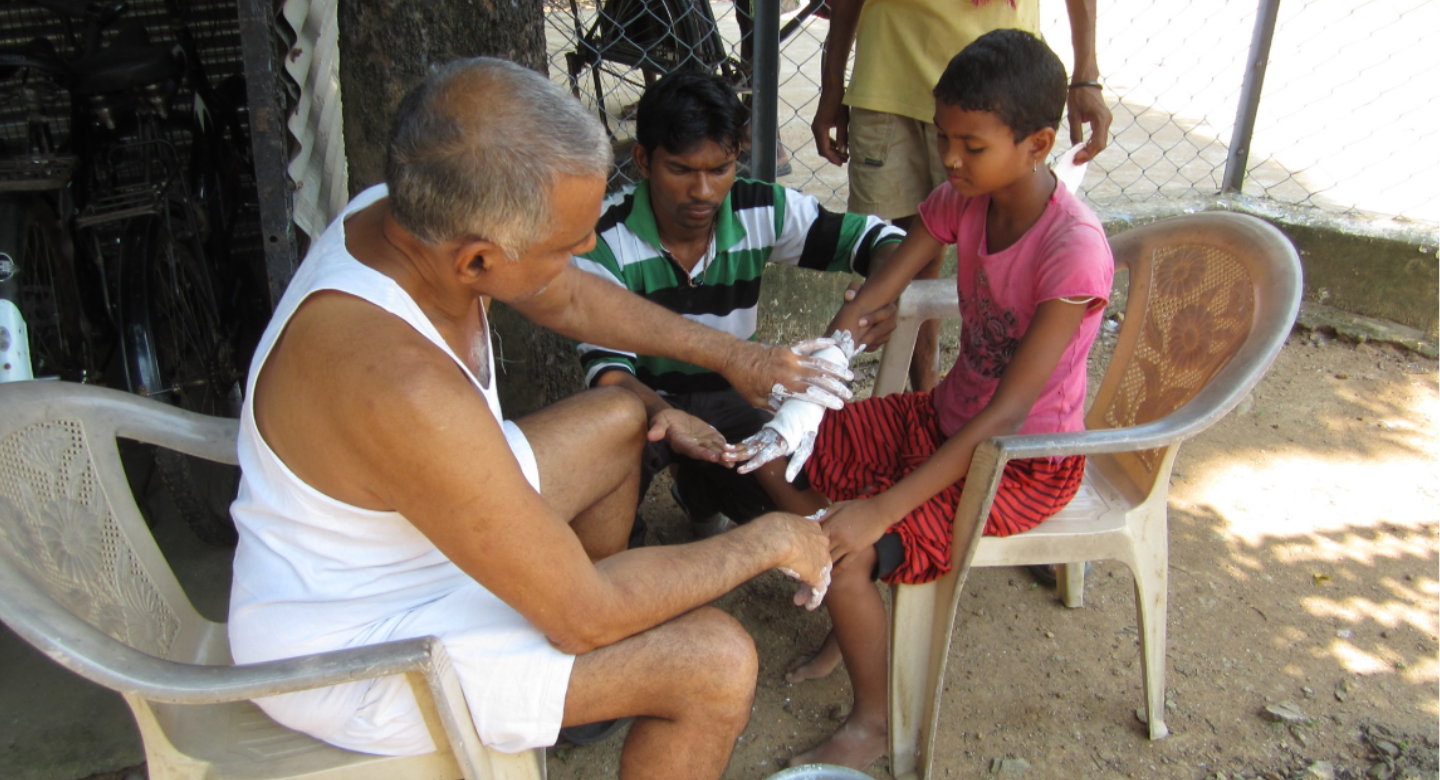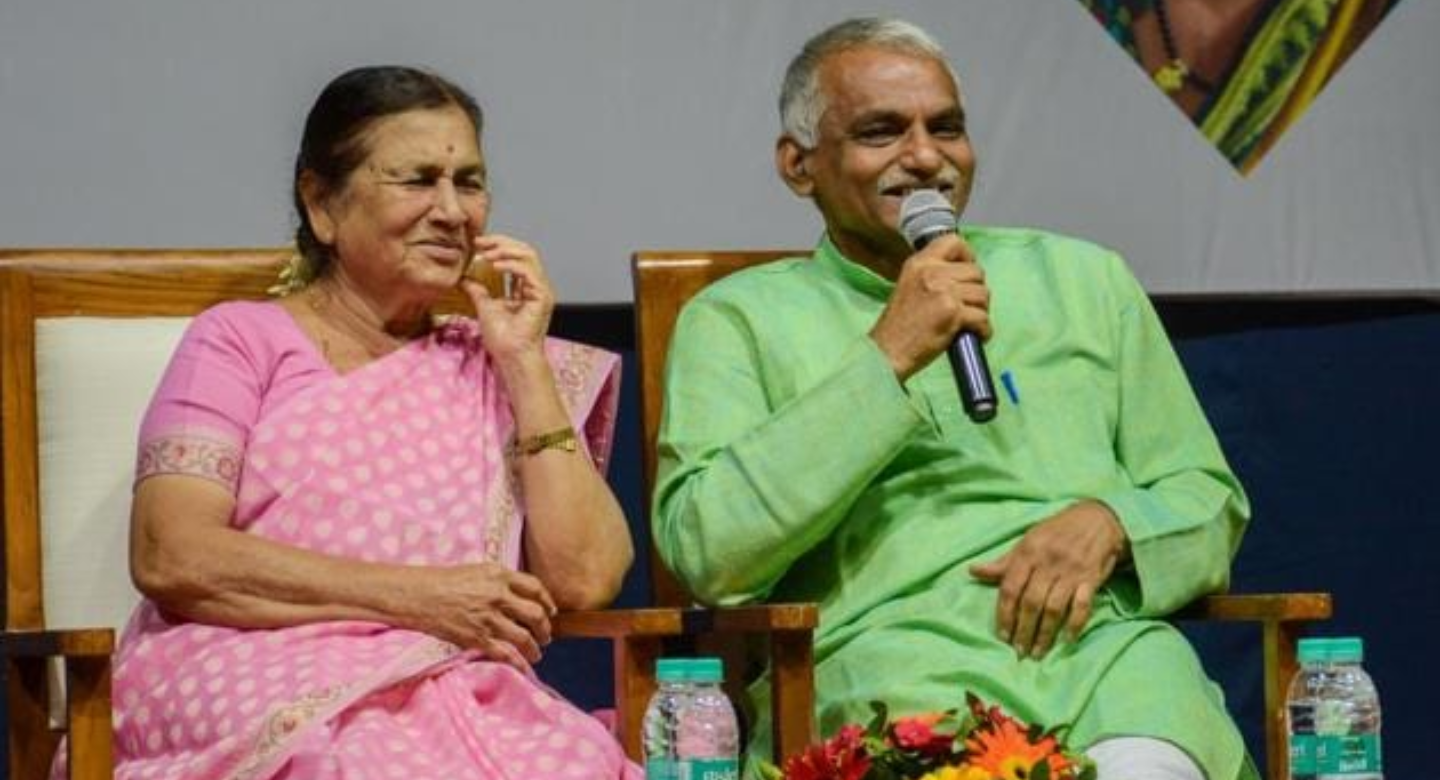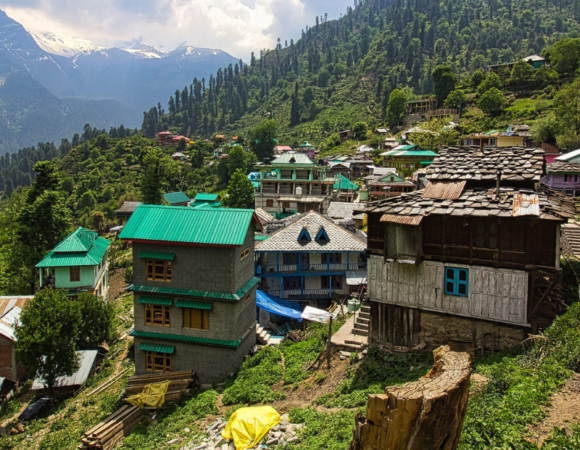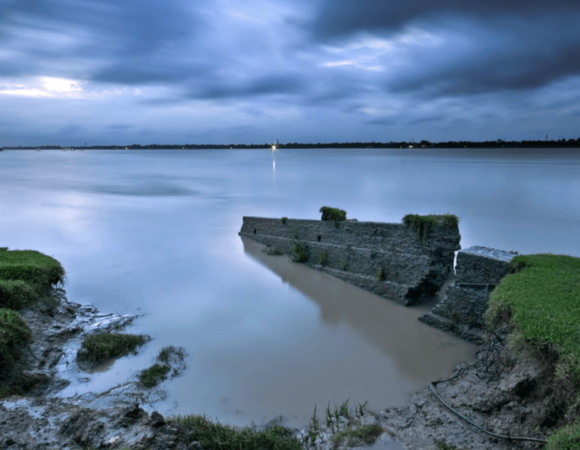Prakash Amte – A Life Dedicated to Social Service and Wildlife Conservation
Prakash Amte’s revolutionary work in tribal welfare and wildlife conservation in Maharashtra has transformed countless lives and preserved endangered species, setting a remarkable example of selfless service.
Table of Contents
TogglePrakash Amte is a remarkable figure in India’s landscape of humanitarian work and environmental conservation. Prakash, the son of renowned social worker Baba Amte, has carved his path of service in the remote forests of Maharashtra. His life’s work bridges the gap between human welfare and wildlife conservation in ways few have attempted. Prakash Amte has touched thousands of lives—both human and animal—through dedication and compassion, creating a sustainable coexistence model.
Early Life and Inspiration

Family Legacy of Service
Born into a family dedicated to social service, Prakash Amte was destined for an uncommon life. His father, Baba Amte, was already famous for his work with leprosy patients. Prakash was born in 1948 in Maharashtra, India, and grew up watching his father’s unwavering commitment to helping the marginalized. The Amte household valued compassion and service above all else, creating an environment where young Prakash developed a deep sense of social responsibility.
Medical Education
Despite his privileged background, Prakash chose a path that would enable him to serve others directly. He studied medicine to gain practical skills to help underserved communities. During medical school, Prakash met his wife Mandakini, who shared his vision for service. Their partnership would prove invaluable in the challenging work that lay ahead. Together, they decided to use their medical training to help those with the least access to healthcare, setting the foundation for their future endeavors.
The Leap into Tribal Service

Discovery of Hemalkasa
In 1973, a pivotal moment came when Prakash Amte first visited the remote Gadchiroli district. The dense forests of Hemalkasa housed the Madia Gond tribal community, who lived in extreme isolation with no access to modern medicine or education. During this visit, Prakash witnessed firsthand the struggles of these communities—high mortality rates, untreated diseases, and deep poverty. He was deeply moved by their plight and decided to dedicate his life to their welfare, despite knowing the immense challenges such a commitment would entail.
Establishing the First Clinic
The beginning was humble but built on strong determination. Prakash and Mandakini set up a small clinic under a tree, armed with only basic medical supplies and their unwavering commitment. They faced initial distrust from the tribal communities, who had never seen modern medicine and relied on traditional healing practices. The couple lived in a small hut, adapted to local conditions, and slowly built connections with the community. Gradually, successful treatments built trust and brought more patients to their door, establishing the foundation of what would become a transformative healthcare system for the region.
Wildlife Conservation Efforts
Accidental Beginnings
Prakash Amte’s journey into wildlife conservation began unexpectedly but became a central part of his life’s work. In 1975, he encountered tribal hunters who had killed a mother monkey, leaving an orphaned baby. The sight of the helpless infant animal stirred something in Prakash. He took in the orphaned monkey, marking the beginning of his wildlife sanctuary. This spontaneous act of compassion would grow into a significant wildlife conservation initiative that now stands as one of the most unique aspects of his work.
Amte’s Animal Ark
What started with one orphaned monkey has grown into a remarkable sanctuary for various wildlife species. The sanctuary now houses over 100 animals, including:

- Leopards rescued from poachers or conflict situations
- Bears that were injured or abandoned
- Hyenas, jackals, and wild dogs that needed rehabilitation
- Various species of deer and antelope
- Numerous birds and reptiles native to the region
Most animals arrive injured or orphaned, often saved from poachers or tribal hunts. With limited resources but unlimited compassion, Prakash Amte created unique facilities that allow the animals to live as naturally as possible. The sanctuary operates on principles of minimal intervention, allowing animals to maintain their natural behaviors while ensuring their safety and health.
Conservation Through Education
Beyond just rescuing animals, Prakash works to change attitudes toward wildlife conservation through educational initiatives. He educates tribal communities about the importance of preserving local wildlife, explaining the ecological balance and how it ultimately benefits human communities as well. Children from the local school regularly visit the sanctuary to learn about animals, creating a new generation with greater environmental awareness. This education has significantly reduced hunting practices in surrounding areas and fostered a sense of pride in the region’s natural heritage.
Impact on Tribal Healthcare
Medical Advancements
Under Prakash Amte’s guidance, healthcare in Hemalkasa has undergone a remarkable transformation. The initial clinic under a tree has grown into a 50-bed hospital equipped to handle a wide range of medical needs. From primary healthcare to complex surgeries, the facility has evolved to meet the growing demands of the community.
The hospital now performs over 2,000 surgeries annually, treating patients who would otherwise have no access to such care. Maternal and infant mortality rates have dropped significantly in the region, with safe deliveries and neonatal care becoming the norm rather than the exception. Preventative healthcare programs reach deep into the forest communities, addressing issues like malnutrition, infectious diseases, and sanitation.
Fighting Superstition with Science
A major challenge was combating traditional beliefs that often worsened health conditions. Many tribal communities attributed illness to supernatural causes and relied on rituals that sometimes delayed effective treatment. Prakash introduced scientific medical practices while respecting tribal culture, finding ways to integrate modern medicine without dismissing traditional wisdom entirely.
He demonstrated the effectiveness of modern medicine through consistent results, allowing the evidence to speak for itself. With time and patience, he gained the trust of community elders and healers. Traditional healers eventually began referring serious cases to Amte’s hospital, creating a complementary system that valued both approaches. This cultural sensitivity proved crucial to the success of his medical initiatives.
Educational Initiatives
The Lok Biradari Project
Recognizing that education was essential for long-term change, Prakash established a comprehensive school known as the Lok Biradari Project. The school began with just 10 students under a thatched roof and now educates over 650 tribal children in proper facilities. The curriculum balances standard academic subjects with practical skills relevant to tribal life, creating formally recognized and culturally appropriate education.
Students learn in their native language before transitioning to broader communication skills. The school provides residential facilities for children from distant villages, ensuring that geography doesn’t limit educational access. Many graduates have returned to serve their communities as teachers and healthcare workers, creating a sustainable cycle of development.
Women’s Empowerment
Prakash Amte placed special emphasis on educating girls, challenging traditional gender roles that often kept women confined to domestic duties. The school maintains equal enrollment of boys and girls, which represented a revolutionary concept in communities where female education was not prioritized. Special programs encourage girls to pursue higher education and develop leadership skills.
The results have been transformative for women’s status in the community. Many tribal women now serve as:
- Community health workers provide basic care and education
- Teachers in primary schools throughout the region
- Leaders in local governance and decision-making bodies
- Advocates for women’s health and rights
This focus on gender equality has created ripple effects throughout tribal society, gradually shifting perspectives on women’s capabilities and contributions.
Recognition and Awards

National and International Acclaim
The exceptional work of Prakash Amte has earned him numerous prestigious awards that recognize his contributions to both humanitarian service and conservation. He received the Ramon Magsaysay Award in 2008, often called Asia’s Nobel Prize, for his community leadership. The Government of India honored him with the Padma Shri in 2002, acknowledging his significant social service contributions at the national level.
Various other organizations have recognized his pioneering work in both medicine and conservation, bringing attention to the unique integrated model he has developed. These accolades serve not just as personal recognition but as validation of his approach to sustainable community development.
Using Recognition for Greater Impact
Prakash uses his awards not for personal gain but to expand his service efforts. Award money has been channeled back into the hospital and school, funding improvements and new initiatives. The recognition has helped attract more volunteers and support from various organizations, expanding the scope of what can be accomplished.
Media attention has raised awareness about the needs of tribal communities and the conservation challenges in the region. Prakash leverages this spotlight to advocate for policy changes and greater governmental support for remote areas. His humble approach to fame has only increased respect for his authentic commitment to service.
Challenges and Perseverance
Remote Location Difficulties
The isolated location of Hemalkasa presents ongoing challenges that have tested the Amtes’ resolve throughout their journey. For decades, reaching the area required crossing rivers without bridges and traversing difficult terrain, sometimes walking for hours to reach patients. Medical supplies and equipment had to be transported through challenging conditions, requiring creative solutions and remarkable persistence.
During monsoons, the area would often become completely inaccessible, cutting off external support for weeks. The Amtes had to develop self-sufficiency and emergency protocols to handle this isolation. Despite infrastructure improvements in recent years, the remote location continues to present logistical challenges that require adaptability and resourcefulness.
Political and Social Hurdles
Beyond geographical challenges, Prakash Amte has navigated a complex social terrain throughout his decades of service. The area has been affected by Naxalite movements and political unrest, creating security concerns and sometimes disrupting operations. Changing government policies sometimes threatened the continuity of his work, requiring diplomatic negotiations and flexibility.
Despite these obstacles, Prakash maintained a neutral stance focused solely on service. His unwavering commitment to helping all people, regardless of political affiliation or background, has earned him respect from all sides. This political neutrality has been crucial to maintaining operations even during periods of conflict.
The Amte Family Legacy Continues

Next Generation Involvement
The tradition of service has passed to the next generation of the Amte family, ensuring continuity of the projects. Prakash and Mandakini’s sons, Digant and Aniket, are both doctors who work alongside their parents, bringing fresh perspectives while honoring the established approach. Their daughters-in-law also contribute to the hospital and educational initiatives, each finding their area of impact.
This family commitment ensures the sustainability of the projects beyond the founders. The younger generation has introduced modern medical techniques and technologies while preserving the compassionate, personal approach that has been the hallmark of Amte’s work. Their presence provides security for the community that the services they’ve come to depend on will continue.
Expanding the Vision
The scope of work continues to grow beyond the founders’ original vision, adapting to changing needs and opportunities. New programs focus on sustainable agriculture and forest conservation, helping tribal communities develop livelihoods that preserve rather than deplete natural resources. Digital education initiatives now connect tribal students to wider opportunities, bridging the technology gap that often limits rural advancement.
Telemedicine services have expanded healthcare reach into even more remote areas, bringing specialist consultations to places that could never support such services physically. Vocational training programs provide youth with skills that can generate income while keeping them connected to their cultural roots. This evolution demonstrates how the foundational principles of Prakash’s work continue to find new expressions.
Lessons from Prakash Amte’s Life
The Power of Consistent Service
Prakash Amte’s life demonstrates the impact of unwavering dedication over time. His 50+ years of service show how persistence can transform entire communities, creating change that might seem impossible when viewed from the starting point. Small daily acts of compassion have accumulated into massive positive change that spans generations. His approach proves that sustainable development requires long-term commitment rather than short-term interventions.
The patience to build trust slowly, to adapt to setbacks, and to celebrate small victories has characterized his work. This steadiness contrasts sharply with development approaches that expect quick results, offering important lessons about authentic community transformation.
Balancing Human Welfare and Conservation
Perhaps most importantly, Prakash Amte has shown a unique path to harmonizing human needs with environmental protection. His work demonstrates that human progress need not come at the expense of wildlife, challenging the false dichotomy often presented between development and conservation. The model in Hemalkasa shows how education creates respect for the natural world, fostering environmental stewardship alongside human advancement.
Indigenous communities can be the strongest allies in conservation efforts when properly engaged and supported. By addressing basic needs like healthcare and education, Prakash created the foundation for environmental awareness to flourish. This integrated approach recognizes that sustainable human communities and thriving ecosystems are interdependent goals rather than competing priorities.
Conclusion About Prakash Amte: A Life Dedicated to Social Service and Wildlife Conservation
Prakash Amte’s life stands as a testament to what dedication and compassion can achieve. From a single clinic under a tree to a comprehensive center for human welfare and wildlife conservation, his journey inspires us to look beyond conventional boundaries of service. By addressing the needs of both the tribal communities and the wildlife that surrounds them, Prakash has created a holistic model of development that respects all forms of life.
His work reminds us that even in our specialized world, the greatest impact often comes from those who see the interconnectedness of all problems and solutions. As climate change and social inequalities present ever-greater challenges, Prakash Amte’s integrated approach to service offers valuable lessons for sustainable development worldwide.
For those seeking to make a difference, Prakash Amte’s life delivers a powerful message: meaningful change requires not grand gestures but consistent effort, genuine compassion, and the courage to go where help is most needed.
Read More
Radhe Shyam Bishnoi: The Guardian of the Great Indian Bustard
Patanjali Jha – Creating Food Forests for Livelihood & Ecology
D. Saravanan – Transforming Barren Land into a Thriving Forest
Sonam Wangchuk – The Changemaker Fighting Climate Change




